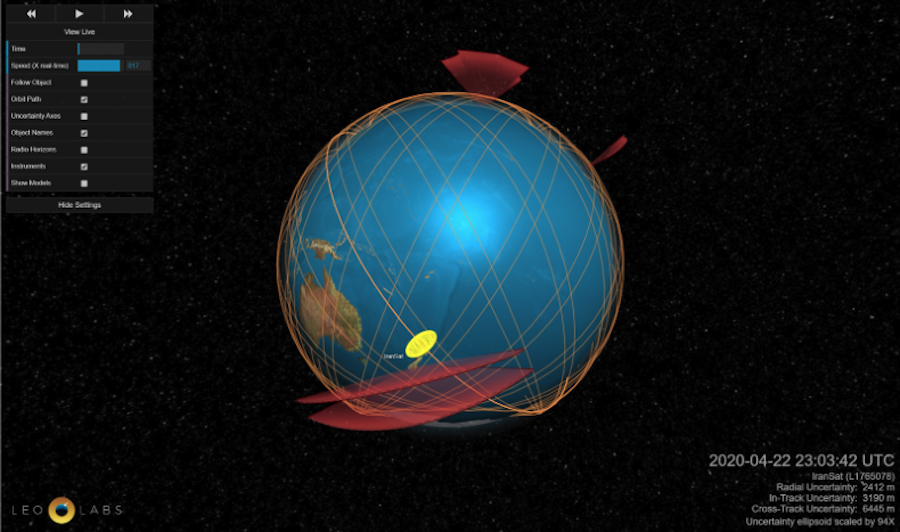DoD said this agreement is to “ensure the continued viability of space surveillance capability” in the U.S. industrial base.
WASHINGTON — The Defense Department announced on July 10 it has awarded LeoLabs, a provider of space surveillance data services, a $15 million contract funded under the Defense Production Act to shore up domestic industries financially impacted by the COVID-19 pandemic.
LeoLabs, a startup based in Silicon Valley, tracks satellites and debris in low Earth orbit using ground-based phased array radars.
“As part of the national response to COVID-19, the Department of Defense entered into a $15 million agreement with LeoLabs Inc. to ensure the continued viability of space surveillance capability through the operation and maintenance of a worldwide highly capable phased-array radar network,” DoD said in a statement.
The Coronavirus Aid, Relief, and Economic Security (CARES) Act that Congress passed and President Trump signed on March 27 provided $1 billion for Defense Production Act efforts to ensure the availability of critical technology for national defense and to invest in domestic industrial base capabilities.
“The ability to surveil and analyze spacecraft in low Earth orbit is essential to national defense,” DoD said. “LeoLabs is the only domestic commercial supplier with demonstrated capability in this critical area.”
Using funds authorized and appropriated under the CARES Act, the DPA Title 3 investment will “offset direct workforce and financial distress brought about by the coronavirus pandemic,” DoD said. The $15 million contract for space situational awareness services will help “ensure resultant critical capabilities are retained within the U.S.”
